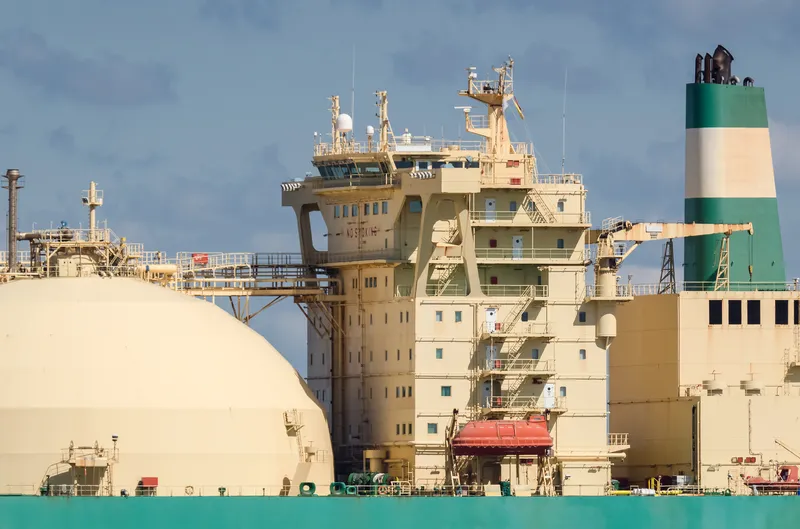The home run
The US presidential election year this time around will have immediate impacts on the global project finance market. Last week, President Joe Biden put the pause on four LNG export schemes, a pause long enough to probably take the federal decisions on the schemes beyond November 5. But LNG is just one of a number of sectors both inside and outside the US that will be directly impacted big time by the vote – or perhaps not – when the dust settles.

What is it with LNG? On the one hand, it was a realpolitik fuel supply saviour for Europe following the Russian invasion of Ukraine. On the other, it is a climate bomb. It is clear LNG is needed by the world's leading economies until at least 2050 and yet European export credit agencies, controlled by governments that were the main beneficiaries of LNG exports in 2022, are backing away. The one clear environmental point about LNG is the need cut methane emissions from gas production. That is a massive carbon saving. Beyond that it becomes political.
President Biden said last week the pause on LNG approvals "sees the climate crisis for what it is: the existential threat of our time". Yet during his presidency one or two mega LNG projects have been project financed every year and US LNG production was ramped up further on existing projects in 2022.
But LNG is just one sector in a whole raft of sectors impacted by the presidential election. What if it happens a second time, Trump wins? And what happens this year, in 2024. Will developers and investors push ahead with their projects, even if a final investment decision (FID) will probably occur after 2024? Will there be a rush to get schemes done this year to beat the uncertainties?
Obviously, if the Democrats win the landscape going forward in 2025 will look similar to now. The big question is, what if Trump wins? Will the Inflation Reduction Act (IRA) be torn up? One can assume LNG federal approvals will move ahead but what about all those other projects – some very new tech and very new industry, which need government grants to be economic?
Last time around, in 2016, it was widely assumed Trump did not expect to win and therefore was taken by surprise and took time to settle in. That said, on election night the only policy goal he mentioned was to do with upgrading the country's infrastructure – although in the next four years that proved as problematic for him as any other president. This time around, however, Team Trump is said to be well prepared with a host of policies so it can hit the ground running.
Perhaps. Any incoming leader always finds it harder to implement policy ideas in practice than on paper. And if you look at the policies of both Biden and Trump, they have one core similarity, a growing level of protectionism. Biden's IRA is a way to boost US manufacturing jobs in the new tech and green sectors, with many grants actually going to Republican areas. The act has been criticised for sucking green capital away from the rest of the world and other governments have had to respond with their own incentive packages – a truly inflationary impact.
For his part, Trump's latest economic idea is a 10% tariff on all imported goods. Rabobank global strategist Michael Every said was aimed at “structurally breaking the global system by hook or by crook, to basically re-industrialise the US in a neo-Hamiltonian manner”. Traditional right wing think tanks are obviously not keen. But interestingly, Biden's Treasury Secretary Janet Yellen said the plan would “raise the cost of a wide variety of goods that American businesses and consumers rely on”, although tariffs are appropriate “in some cases”.
As the election heats up we will presumably see a lot of policy ideas aimed at the home base, that is democracy after all. But after November 5, will the US projects market fundamentally change?
Biden's policies will obviously continue, even if the Democrats pick a new candidate. One new focus could be decarbonisation of heavy industries such as steel, cement and refineries. The Biden years have been good for the project finance market. In 2023 the project loans market reached US$116.1bn up from US$104bn in 2022, US$63.6bn in 2021 and US$53.5bn in 2020.
Trump could move away from a grant-based approach to more tax cuts to encourage investment. He proved in his previous term he is no fiscal conservative, so there should be plenty of federal incentives around. Trump has said he will boost investment in fossil fuel schemes to cut energy costs. But to repeal the IRA he will need a new act to go though Congress, which could be a challenge. Whatever transpires, however, he has shown he acts on instinct and can quickly shift policies and personnel.
Ironically, as we move away from the ideas of globalisation, the impact of say the US presidential election on the projects market is greater than ever.






